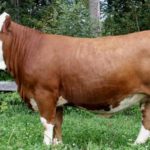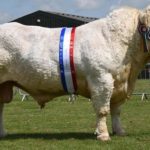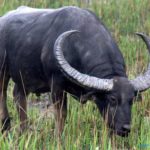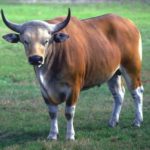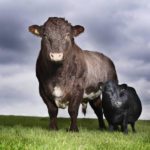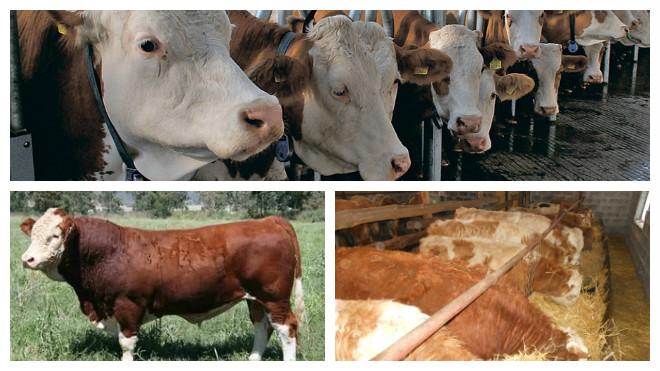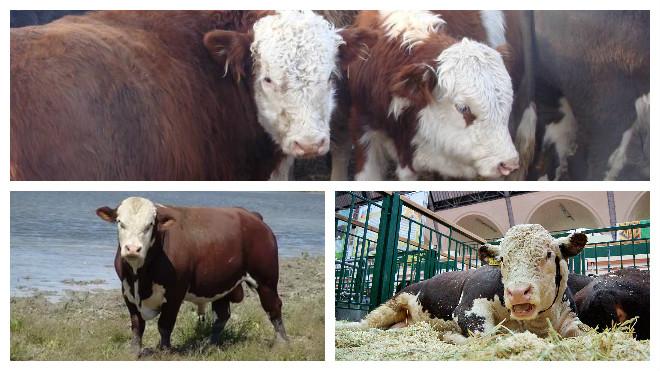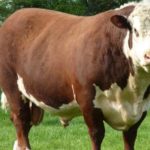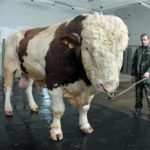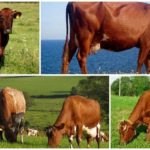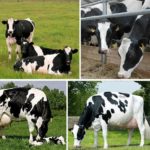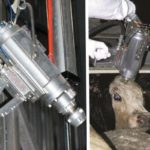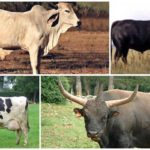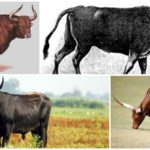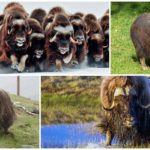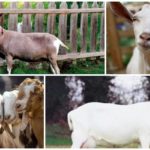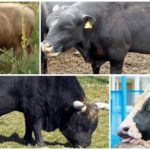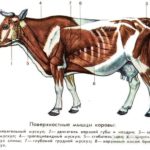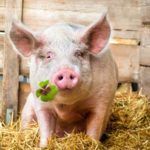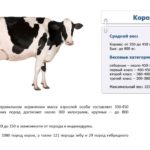When figuring out how many years bulls live, it should be taken into account that in captivity the animal is provided with good feed, a barn, and veterinary supervision throughout its life. That is why the life expectancy of cattle on farms and especially in private farms increases significantly compared to the wild. Although bulls in captivity rarely live to old age, since feeding an aging animal for several years is not economically profitable for the owner of the livestock.
How long do bulls live on average?
The lifespan of cattle is 17-20 years, this is the lifespan of cows.Bulls are kept for no more than 15 years. High-quality care, vaccinations, and timely treatment of diseases extend the life of bulls to 35 years. Of course, it is not advisable to keep livestock for so many years; the life expectancy of animals directly depends on their productivity.
By country
The lifespan of an animal depends on the country of residence and the climate in which the animal lives. In India, bulls and cows die naturally because the animal is considered sacred there. A warm climate, plenty of food and a ban on killing increase lifespan to 35-40 years.
In northern regions, for example, in Russia, animals live no more than 8-9 years; when productivity decreases, they are sent to slaughter, replaced by younger livestock. The bulls are kept on the farm for 16-20 months, then they are slaughtered, the inseminating bull is left for 12-14 years to reproduce the livestock.
Depending on the breed
The lifespan of animals depends on the breed of cattle. Representatives of the dairy sector of livestock farming live 3-5 years less than their meat, dairy and meat relatives. Milk production requires significant energy expenditure. The age of a cow or bull when purchased can be determined by the teeth or annual rings on the animal’s horns.
At home and on the farm
On a private farmstead, cows and bulls live much longer than on a farm. This is due to better conditions of detention. Animals in a private yard move more, they are guaranteed the love of their owners and constant interaction with them.
In nature
In nature, if a bull does not die from illness and is not eaten by a predator, it lives up to 15-20 years. Of course, only if in winter it does not die from colds or other diseases, or from lack of food.
Important: in countries with cold climates life expectancy of cows and there are significantly fewer bulls than in warm regions.
Factors influencing life expectancy
In nature, bulls and heifers suffer from helminthic infestations, lack of food, and can be poisoned by poisonous plants or eaten by predators. Animals on private farms receive a balanced diet, high-quality feed, necessary supplements and vitamins. During the cold period, animals are protected from rain and snow, cows do not have to look for food on their own, they drink clean, heated water. Bulls and cows with a good owner do not suffer from colds.
The barn is cleaned daily, the animals are washed, and the udders and hooves are examined to prevent the development of inflammation.
Livestock from calf age are vaccinated against infectious diseases, calves up to 1 month are examined daily, from 1 to 3 months - every 10 days, then - monthly. Animals receive roughage and succulent feed, additives (salt, fish oil, bone meal, chalk), for animals this is an additional source of essential minerals.
To rid livestock of worms, animals are given special medications on a quarterly basis on the recommendation of a veterinarian. Before releasing animals to pasture, be sure to inspect the grazing area and remove poisonous plants.
How to increase your lifespan
To increase the lifespan of cows and bulls, it is necessary to provide them with high-quality feed, the diet should include:
- hay;
- ripe root vegetables, without dirt and rot;
- silage;
- feed including mineral supplements.
In summer, hay and feed are replaced with fresh meadow grass. Animals need free access to clean water and exercise to maintain mobility and healthy hooves. There should be enough space in the barn (up to 15 square meters per individual), this allows bulls and cows to move and lie down, the room should be clean, bright and well ventilated.
Avoid crowding of animals, high humidity in the room, dirt on the floor, in feeders and drinkers. The premises are cleaned of manure daily and drinking bowls are rinsed. Feeders are cleared of debris. Animals should not be given frost-bound, frost-covered or wet grass or frozen vegetables, as this can cause inflammation of the abomasum.
Do not graze animals in dew or immediately after rain. Animals should be washed systematically and cleaned of dirt using brushes.
Bulls are kept separately from the rest of the livestock. Chains are needed in the stall to secure the animal. The cattle population must walk 1-2 kilometers daily. It is necessary to inspect the udder of animals and massage the organ. Animals should be fed and milked at the same time. It is necessary to protect cows and bulls from stress (sharp sounds, noise, strangers in the room).
In order for cows and bulls to live long and not lose productivity, they must be walked daily for 1-2 hours. The exception is severe frosts. Nutrition, high-quality maintenance, availability of walks and veterinary control ensure the animals' health, strong immunity, endurance and fatness.
Optimal age for slaughter
If bulls are purchased for the purpose of fattening, you should buy bulls that are 6 months old. They are no longer given milk; they are completely adapted to adult food.Bull calves are sent to slaughter at 16-20 months. To ensure muscle gain, bulls are not castrated until 10-12 months. Heifers are culled if their udders are underdeveloped or have health problems.
Before slaughter, animals are put on fattening - enhanced nutrition for rapid weight gain.
Bulls and cows in domestic households live longer than those on large farms or in the wild, but only if they are carefully cared for. Affection and good attitude of the owners significantly increase the lifespan of animals, but a decrease in productivity forces bulls and cows to be sent to slaughter in order not to waste feed and to replace the livestock in a timely manner.

